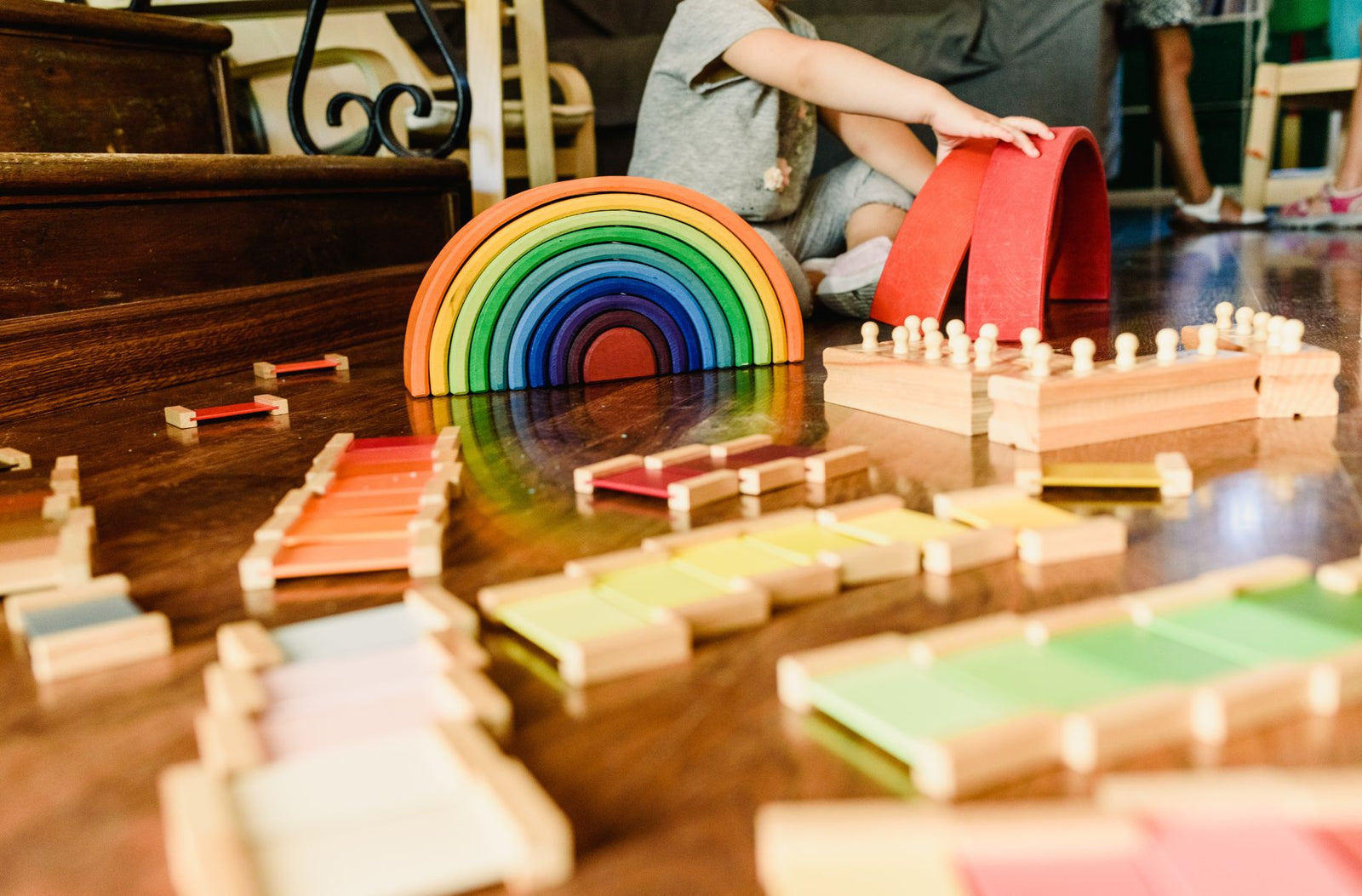Foster Independence with Montessori Methods

Children naturally crave independence as they grow, seeking to explore and navigate their environment on their own terms. Harnessing this innate desire can lead to significant developmental benefits. Montessori methods offer a structured yet flexible approach to nurture this independence right from early childhood. These techniques emphasize self-directed learning, where children are encouraged to take the lead in their educational journey.
Montessori-based activities are designed to align with a child's developmental stages, supporting autonomy while cultivating life skills. By integrating these methods into daily life, parents can empower their children to become confident and self-reliant individuals. This approach not only enriches a child's learning but also prepares them to tackle challenges with resilience and creativity.
Implementing Montessori principles at home is an effective way to create a supportive environment where independence can flourish. By making simple changes in how we interact with and set up spaces for our children, we can foster an atmosphere that promotes self-sufficiency and thoughtful decision-making. Embracing Montessori methods can transform early childhood experiences, paving the way for lifelong learning and growth.
Understanding Montessori Principles of Independence
The Montessori approach values a child's instinct to learn and grow on their own. Central to this philosophy is the belief that independence is key to fostering a love for learning. Children are seen as capable individuals with the potential to direct their own educational journey. By encouraging them to make choices, solve problems, and engage in hands-on activities, this method promotes self-determination and empowerment.
At the core of Montessori principles is respect for the child's individuality. This respect translates into allowing children to choose activities that capture their interest, thus boosting motivation and engagement. Unlike traditional teaching methods, Montessori focuses on the process rather than the end result, emphasizing the importance of exploration and discovery.
Freedom within limits also plays a crucial role. Children have the freedom to select their tasks and work on them at their own pace, within a structure that supports learning and safety. This balance helps children learn self-discipline and responsibility. Mixed-age classrooms often found in Montessori settings allow younger children to learn from older peers, fostering a sense of community and collaboration.
Overall, these principles create an environment where children feel valued and capable, laying a strong foundation for lifelong independence.
Key Montessori Activities That Promote Self-Sufficiency
Montessori activities are designed to help children gain practical life skills and confidence. Here are some key activities that encourage self-sufficiency:
1. Practical Life Activities: These tasks mirror daily chores and include activities like buttoning clothes, pouring water, and tying shoelaces. They help children develop fine motor skills and teach them how to care for themselves and their environment.
2. Sensorial Activities: Designed to refine the senses, these activities involve sorting objects by touch, matching sounds, or differentiating between different scents. They sharpen sensory perception and help children make sense of the world around them.
3. Art and Crafts: Creative projects allow children to express themselves while learning to follow steps and manage materials. Activities like drawing, cutting shapes, and assembling models nurture independence and creativity.
4. Language Activities: Language games and storytelling sessions improve communication skills. Children learn new vocabulary, enhance their speaking abilities, and build confidence in expressing ideas.
5. Mathematics Materials: Montessori math involves hands-on elements like beads, number rods, and sandpaper numbers. These tools help children understand numerical concepts and solve problems independently.
By participating in these activities, children not only master essential skills but also build self-esteem and a sense of accomplishment. Such experiences are crucial in developing a child's ability to think and act independently.
Designing an Independence-Friendly Environment at Home
Creating an environment at home that supports independence involves thoughtful arrangement and selection of materials. Start by setting up spaces where your child can easily access and use items needed for daily activities. Choose furniture and storage solutions that are child-sized and within reach, allowing kids to grab what they need without relying on adults. Open shelves are a great option as they let children see and select toys and materials easily.
Keep the environment organized but simple. Too many options can overwhelm a child, so curate the items presented. Rotate toys and activities periodically to keep interest levels high and to adapt to your child's developmental needs.
Incorporate areas for specific activities like reading, crafting, and play. A cozy reading nook with a small bookshelf can encourage exploration of books while an art corner with all necessary supplies can spur creativity. Designate zones for practical life activities, such as a kitchen area where they can prepare snacks with supervision, fostering both skill development and self-reliance.
Lighting and aesthetics also matter. A well-lit, airy space makes the environment more inviting and promotes a sense of calmness. By designing a home environment that mirrors Montessori principles, you are laying the groundwork for your child to thrive independently.
Practical Tips for Encouraging Independence in Everyday Life
Fostering independence in everyday life can be straightforward with these practical tips:
1. Set Routines: Establishing consistent daily routines helps children understand the flow of their day and what is expected of them. Routine builds security and confidence
2. Offer Choices: Allow children to choose between different outfits, snacks, or activities. Having a say in their day gives them a sense of control and boosts decision-making skills.
3. Encourage Problem-Solving: When faced with challenges, guide them to think through solutions rather than stepping in too quickly. Encourage them to ask questions and explore possible answers.
4. Use Encouraging Language: Positive reinforcement goes a long way. Acknowledge their efforts and commend their achievements, building self-esteem and motivation.
5. Teach Life Skills: Introduce simple life skills like brushing teeth, washing hands, or tidying up toys. These activities empower children to take charge of their well-being and surroundings.
6. Involve Them in Tasks: Include them in household tasks. Whether it's setting the table or sorting laundry, participation fosters a sense of responsibility and belonging.
Implementing these strategies can seamlessly integrate independence into daily life, helping your child gain the skills and confidence needed to navigate the world.
Conclusion
Montessori methods provide a proven strategy for helping children develop independence from an early age. By focusing on self-directed learning, children become active participants in their own growth. This approach encourages curiosity, problem-solving, and self-assurance, all essential skills for lifelong success.
At Hatchberry, we understand the importance of nurturing independence in young children. Our commitment to providing time-tested Montessori products, expert advice, and personalized coaching supports parents every step of the way. Encourage your child's unique development and independence by exploring our resources at Hatchberry.
Join us in embracing the Montessori way to transform your parenting journey and unlock your child's limitless potential.








